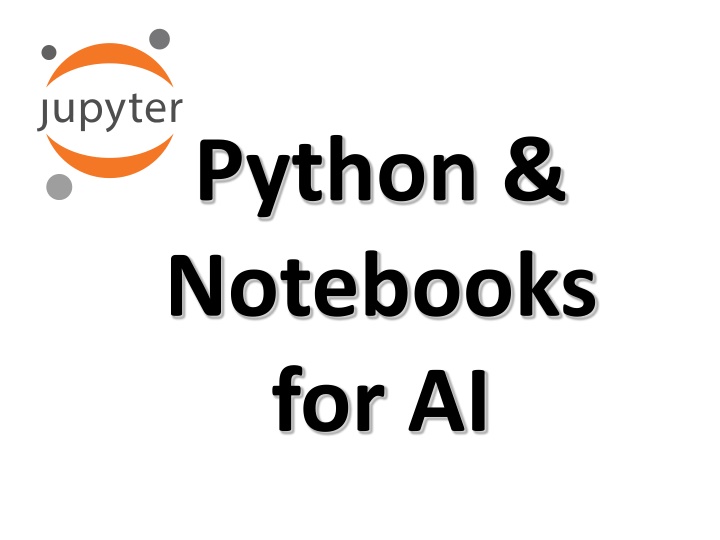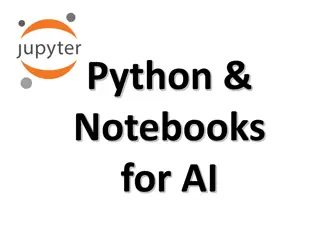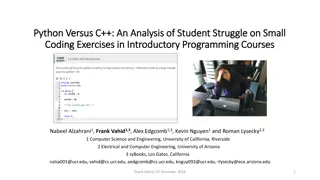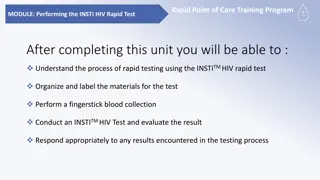Python Notebooks for AI: Rapid Development and Exploration
Python has become the most popular programming language for AI due to its ease of use, large library of modules, and efficiency in rapid development. With new neural network packages like TensorFlow and PyTorch, Python is ideal for exploring and evaluating new AI ideas quickly using tools like Jupyter Notebooks.
Download Presentation

Please find below an Image/Link to download the presentation.
The content on the website is provided AS IS for your information and personal use only. It may not be sold, licensed, or shared on other websites without obtaining consent from the author.If you encounter any issues during the download, it is possible that the publisher has removed the file from their server.
You are allowed to download the files provided on this website for personal or commercial use, subject to the condition that they are used lawfully. All files are the property of their respective owners.
The content on the website is provided AS IS for your information and personal use only. It may not be sold, licensed, or shared on other websites without obtaining consent from the author.
E N D
Presentation Transcript
Python & Notebooks for AI
Why Python Python has become the most popular programming language today by some metrics It s a great higher-level programming language Easy to learn and use Many interesting and powerful features Large library of modules; easy to install Drawbacks: slow (interpreted); few built-in datatypes (no arrays!), poor multiprocessing, Overcome by new modules implementing efficient data structures in C (e.g., Numpy)
Why Python for AI? AI is currently undergoing a Cambrian explosion New ideas appear every week and must be evaluated and explored rapidly to maintain an advantage or even keep up Applies to companies, researchers, students Python is great for rapid development New neural network packages (e.g., TensorFlow, PyTorch) use efficient C modules for expensive computing parts, visualization, etc.
Jupyter Notebooks Current Python notebook software, replacing iPython Open source, browser- based application to create and share interactive documents with Live Python code (also R, Julia, Scala, Bash, ) Visualizations Narrative Text Also has a console window and file mover
Three ways to use Install on your computer Pip install jupyter; cd to working directory; execute command jupyter notebook ; visit browser In your browser, access UMBC s remote Jupyter server, https://jupyter.rs.umbc.edu/ Requires authorization and then logging in Access Google s free Colab server at https://colab.research.google.com/ Powerful but harder to work with local files on your computer Ok, there are more ways, but
Lets try it Example: code to solve water jug problems with two jugs























